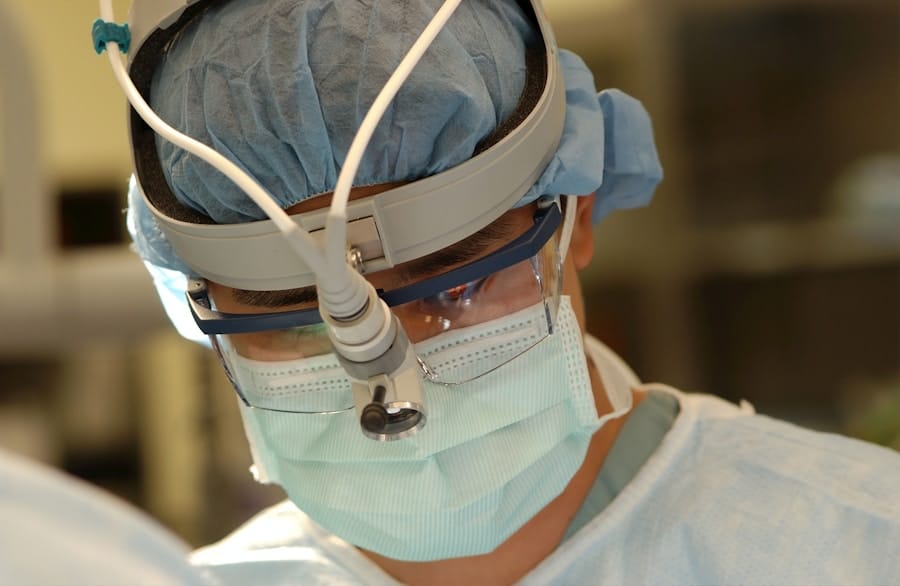In recent years, the landscape of surgical interventions has been transformed by the advent of robotic surgery, particularly in the realm of colorectal cancer treatment. As you delve into this innovative approach, you will discover how it combines advanced technology with the expertise of skilled surgeons to enhance patient outcomes. Robotic surgery offers a minimally invasive alternative to traditional surgical methods, allowing for greater precision and control during complex procedures.
This evolution in surgical techniques is not just a trend; it represents a significant shift in how colorectal cancer is managed, promising improved recovery times and reduced complications. As you explore the intricacies of robotic surgery, you will find that it is not merely about replacing human skill with machines. Instead, it is about augmenting the capabilities of surgeons, enabling them to perform intricate maneuvers that were once deemed challenging or impossible.
The integration of robotics into colorectal cancer treatment signifies a commitment to advancing medical practices and prioritizing patient well-being. Understanding this technology’s role in colorectal cancer management is essential for both patients and healthcare providers as they navigate the complexities of treatment options.
Key Takeaways
- Robotic surgery is a minimally invasive surgical technique that has revolutionized the treatment of colorectal cancer, offering improved precision and faster recovery times.
- Colorectal cancer is a common and potentially deadly disease, but with early detection and a range of treatment options including surgery, chemotherapy, and radiation therapy, the prognosis can be positive.
- Robotic surgery is used in colorectal cancer treatment for procedures such as tumor removal, lymph node dissection, and reconnection of the intestines, providing better visualization and dexterity for the surgeon.
- The benefits of robotic surgery in colorectal cancer treatment include reduced blood loss, shorter hospital stays, faster recovery, and lower risk of complications compared to traditional open surgery.
- While robotic surgery offers many advantages, it also has risks and limitations such as longer operating times, potential for technical malfunctions, and the need for highly skilled surgeons to operate the robotic system effectively.
Understanding Colorectal Cancer and its Treatment Options
Early Detection and Screening
Early detection through screening methods like colonoscopies is crucial for effective treatment outcomes. Understanding the biology of colorectal cancer and its progression is vital for anyone facing this diagnosis.
Treatment Options
Treatment options for colorectal cancer are diverse and tailored to individual patient needs. Surgical intervention remains a cornerstone of treatment, particularly for localized cancers. In addition to surgery, patients may also undergo chemotherapy, radiation therapy, or targeted therapies depending on the stage and characteristics of their cancer.
Personalized Decision-Making
The decision-making process can be complex, requiring a multidisciplinary approach that involves oncologists, surgeons, and other healthcare professionals. As you navigate these options, it is essential to consider factors such as tumor stage, overall health, and personal preferences.
How Robotic Surgery is Used in Colorectal Cancer Treatment

Robotic surgery has emerged as a powerful tool in the treatment of colorectal cancer, offering a minimally invasive approach that can significantly enhance surgical precision. In this context, you will find that robotic systems allow surgeons to operate through small incisions using robotic arms controlled by a console. This setup provides a three-dimensional view of the surgical field and allows for greater dexterity than traditional laparoscopic techniques.
As you explore this method further, you will see how it enables surgeons to navigate complex anatomical structures with unparalleled accuracy. During robotic-assisted procedures for colorectal cancer, surgeons can perform various operations, including resections of tumors and the creation of anastomoses (connections between two segments of the intestine). The enhanced visualization and precision afforded by robotic systems can lead to better outcomes in terms of tumor removal and preservation of surrounding healthy tissue.
As you consider the implications of this technology, it becomes clear that robotic surgery is not just about convenience; it represents a paradigm shift in how surgical oncology is approached.
Benefits of Robotic Surgery in Colorectal Cancer
The benefits of robotic surgery in colorectal cancer treatment are manifold and can significantly impact your experience as a patient. One of the most notable advantages is the minimally invasive nature of the procedure. With smaller incisions compared to traditional open surgery, you can expect reduced postoperative pain and scarring.
This aspect alone can lead to a quicker recovery time, allowing you to return to your daily activities sooner than you might with conventional surgical methods. Moreover, robotic surgery often results in shorter hospital stays and lower rates of complications such as infections or bleeding. As you consider these factors, it becomes evident that robotic-assisted procedures can enhance your overall quality of life during recovery.
Additionally, the precision offered by robotic systems can lead to better oncological outcomes, including lower rates of cancer recurrence. This combination of benefits makes robotic surgery an appealing option for many patients facing colorectal cancer.
Risks and Limitations of Robotic Surgery in Colorectal Cancer
While robotic surgery presents numerous advantages, it is essential to acknowledge that there are risks and limitations associated with this approach.
One significant concern is the cost associated with robotic surgery.
The technology itself is expensive, which can translate into higher costs for patients and healthcare systems alike. Insurance coverage may vary, so it’s crucial to discuss financial considerations with your healthcare provider. Additionally, while robotic surgery offers enhanced precision, it is not without its challenges.
Surgeons must undergo extensive training to operate robotic systems effectively, and not all medical facilities may have access to this technology. Furthermore, there may be cases where traditional surgical methods are more appropriate due to specific patient factors or tumor characteristics. As you navigate your treatment options, it’s important to have open discussions with your healthcare team about the best approach for your unique situation.
Patient Recovery and Enhanced Recovery After Robotic Surgery

Recovery after robotic surgery for colorectal cancer tends to be more favorable compared to traditional surgical methods.
This aspect can significantly enhance your overall experience during the postoperative period.
Additionally, many patients report a quicker return to normal activities and daily routines. Enhanced Recovery After Surgery (ERAS) protocols are often implemented alongside robotic surgery to optimize recovery outcomes further. These protocols focus on minimizing stress responses during surgery and promoting early mobilization and nutrition postoperatively.
As you engage with your healthcare team about your recovery plan, you may find that these strategies contribute to a smoother transition back to your everyday life.
Future Developments and Advances in Robotic Surgery for Colorectal Cancer
The field of robotic surgery is continually evolving, with ongoing research and technological advancements poised to further enhance its application in colorectal cancer treatment. As you look ahead, you may be excited by innovations such as improved imaging techniques and artificial intelligence integration that could refine surgical planning and execution. These developments hold the potential to increase the accuracy and effectiveness of robotic procedures even further.
Moreover, as more data becomes available regarding long-term outcomes associated with robotic surgery for colorectal cancer, you can expect a growing body of evidence supporting its use in various clinical scenarios. This knowledge will empower both patients and healthcare providers to make informed decisions about treatment options based on the latest advancements in surgical technology.
The Role of Robotic Surgery in Improving Colorectal Cancer Treatment
In conclusion, robotic surgery represents a significant advancement in the treatment landscape for colorectal cancer. As you reflect on the information presented throughout this article, it becomes clear that this innovative approach offers numerous benefits while also presenting certain challenges that must be navigated carefully. The combination of enhanced precision, reduced recovery times, and improved patient outcomes underscores the potential of robotic surgery to transform how colorectal cancer is managed.
As you consider your own journey or that of a loved one facing colorectal cancer, understanding the role of robotic surgery can empower you to engage actively in discussions with healthcare providers about treatment options. The future looks promising as technology continues to advance, paving the way for even more effective interventions in the fight against colorectal cancer. Embracing these innovations may ultimately lead to better outcomes and improved quality of life for patients navigating this challenging diagnosis.
If you are interested in learning more about robotic surgery in colorectal cancer, you may also want to check out this article on how a hospital is training junior doctors in robotic surgery. This article provides insight into the training process for doctors looking to specialize in this advanced surgical technique.
FAQs
What is robotic surgery in colorectal cancer?
Robotic surgery in colorectal cancer is a minimally invasive surgical technique that uses a robotic system to assist the surgeon in performing the operation with enhanced precision and control.
How does robotic surgery work in colorectal cancer?
During robotic surgery for colorectal cancer, the surgeon controls the robotic arms from a console, which are equipped with tiny surgical instruments and a camera. The surgeon guides the instruments to perform the necessary surgical procedures with high precision.
What are the benefits of robotic surgery in colorectal cancer?
Robotic surgery in colorectal cancer offers several benefits, including smaller incisions, reduced blood loss, shorter hospital stays, faster recovery, and potentially better clinical outcomes compared to traditional open surgery.
Who is a candidate for robotic surgery in colorectal cancer?
Patients with colorectal cancer who require surgical intervention may be candidates for robotic surgery, depending on their specific medical condition and the expertise of the surgical team.
What are the potential risks of robotic surgery in colorectal cancer?
While robotic surgery in colorectal cancer is generally safe, there are potential risks associated with any surgical procedure, such as infection, bleeding, and complications related to anesthesia. It is important for patients to discuss the potential risks with their healthcare provider.
